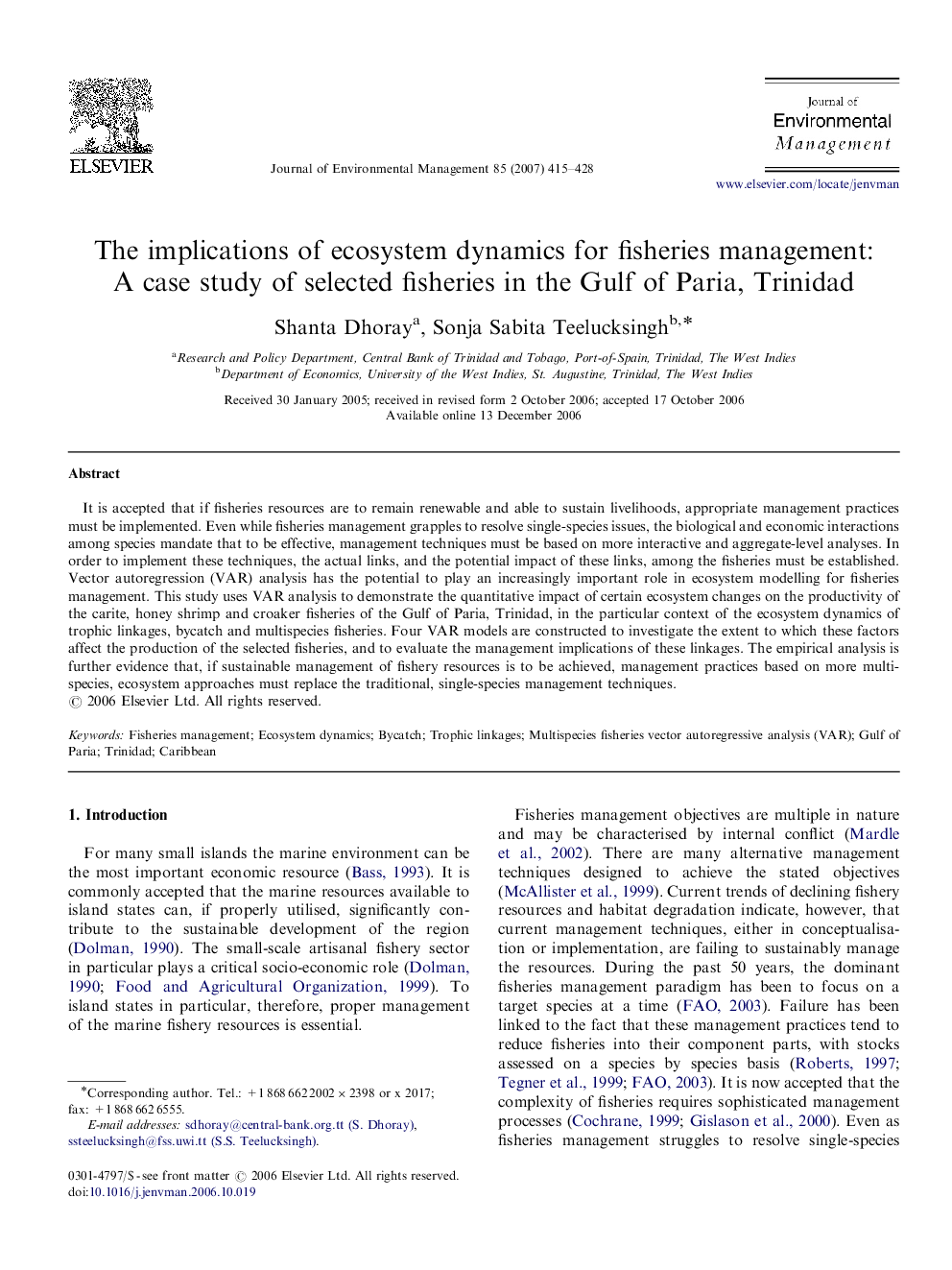| Article ID | Journal | Published Year | Pages | File Type |
|---|---|---|---|---|
| 1058791 | Journal of Environmental Management | 2007 | 14 Pages |
It is accepted that if fisheries resources are to remain renewable and able to sustain livelihoods, appropriate management practices must be implemented. Even while fisheries management grapples to resolve single-species issues, the biological and economic interactions among species mandate that to be effective, management techniques must be based on more interactive and aggregate-level analyses. In order to implement these techniques, the actual links, and the potential impact of these links, among the fisheries must be established. Vector autoregression (VAR) analysis has the potential to play an increasingly important role in ecosystem modelling for fisheries management. This study uses VAR analysis to demonstrate the quantitative impact of certain ecosystem changes on the productivity of the carite, honey shrimp and croaker fisheries of the Gulf of Paria, Trinidad, in the particular context of the ecosystem dynamics of trophic linkages, bycatch and multispecies fisheries. Four VAR models are constructed to investigate the extent to which these factors affect the production of the selected fisheries, and to evaluate the management implications of these linkages. The empirical analysis is further evidence that, if sustainable management of fishery resources is to be achieved, management practices based on more multi-species, ecosystem approaches must replace the traditional, single-species management techniques.
